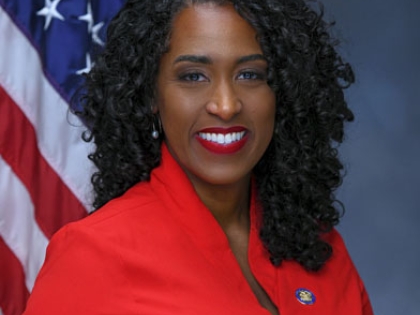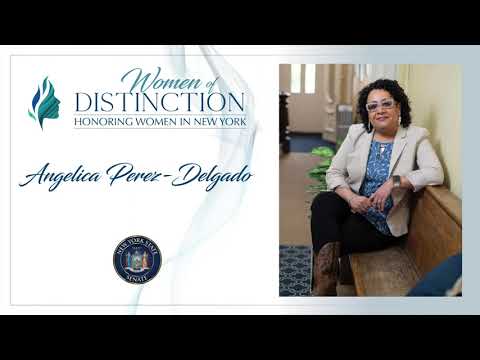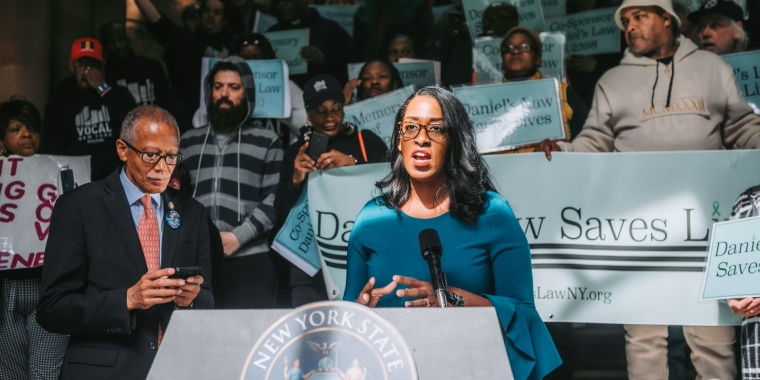
Lawmakers want New York to begin reimbursing doulas through Medicaid
ALBANY— Women giving birth have long had companions gather in the room to offer both emotional and sometimes physical support.
Then came the conventional health care system. The concept of having a non-clinical supporter during childbirth fell by the wayside, supplanted by sterilized hospital facilities staffed by doctors and nurses.
But as New York, along with the rest of the country, grapples with higher-than-average maternal mortality rates, state lawmakers are examining how to reintegrate doulas — trained professionals who guide individuals through the stages of pregnancy and post-pregnancy complications — within the state’s health care system.
State Sen. Samra Brouk, a Rochester Democrat sponsoring legislation that would task the state Department of Health to set Medicaid reimbursement rates for doulas, said they could provide "life-saving care," pointing to negative experiences women often experience during their pregnancy.
Brouk will head a hearing scheduled for Tuesday that will look at expanding Medicaid coverage for women who want to hire doulas to assist with their births — currently an inaccessible service for low-income people who are enrolled in that system.
"When you think about it, we can't even get that part right — how to bring life into this world and take care of the birthing person who's bringing that life into this world," said Brouk, who herself used a doula when giving birth to her first child last year. "And it's a major policy failure and failure of our health care system."
Negative pregnancy experiences can range from unnecessary and unwanted procedures during birth procedures to postpartum depression and even death. Last year, a state Department of Health report found that of 41 pregnancy-related deaths in New York in 2018, embolism, hemorrhaging and mental health conditions were the leading causes.
The U.S. has higher maternal mortality rates compared to other high-income nations, an increasing trend since 2000. There is also an underlying disparity between who suffers from higher maternal mortality rates in New York; Black women are about five times more likely to die because of pregnancy-related complications compared to white women, the Department of Health report found.
Doulas often function as advocates for the people giving birth, said Christine Hernandez, a doula based in Saratoga Springs. Many doulas have amassed years of chidbirth experience, making them especially attractive for first-time parents.
But they also fill a void in the days and weeks immediately following a birth, when parents are sent home to adjust to life with a baby and may not be required to check in with a medical provider for up to six weeks.
"We come in on day three, day six — and we have our eyes on people," Hernandez said. “We're not medical professionals, but we're very well-versed in catching that something might be amiss with someone."
Increasingly, private insurers are recognizing their services. The Albany-based health insurance agency CDPHP recently announced it would offer up to $1,500 in reimbursement for people working with doulas — a fair market rate, according to Hernandez. Blue Cross Blue Shield is considering a similar benefit.
Those on Medicaid, a federal and state-funded program that offers medical coverage for low-income New Yorkers, do not have the same access. Yet "families who can't afford doulas are the ones who often need them the most," said Betsy Mercogliano, co-founder of an Albany-based organization called BirthNet that aims to eliminate inequities in birth outcomes.
Local hospitals, too, are leaning toward embracing doula care. Mercogliano, who has been a doula for over 40 years, said that she’s been working with the Albany Medical Center to provide a community doula service that would give the hospital a list of doulas to call if someone in labor came to the hospital and "looked like they could really use support."
Not all medical providers are open to the idea, said Liz Addeo, an Albany-based doula, citing some local clinicians who discourage their patients from bringing doulas along when they give birth. But the hope is that with increased coverage and increased use of doula services, medical providers will view doulas more as a vital and complementary service rather than as intruders.
Doulas also caution that any expansion of Medicaid coverage should be careful in how it mandates regulation of the industry. Doulas sometimes receive no standardized training, instead piecing together knowledge through apprenticeships. Some fear that the new legislation would make self-training redundant and require stricter licensing or some form of higher education — which could present new barriers to becoming one.
The hearing next week will likely include testimony from doulas in the Capital Region who will speak to those concerns and others.
New York still trails other states that have begun offering reimbursement for doula services through Medicaid, according to Georgetown University’s Health Policy Institute, Brouk said, adding that she wants the state to include the policy in its budget being negotiated this month.
"Doulas can change your whole experience and they can take it from an experience full of fear and anxiety to one of comfort and joy," Brouk said. "We deserve to walk into our hospital or birthing center pregnant and to walk out happily and healthy with our newborn."


